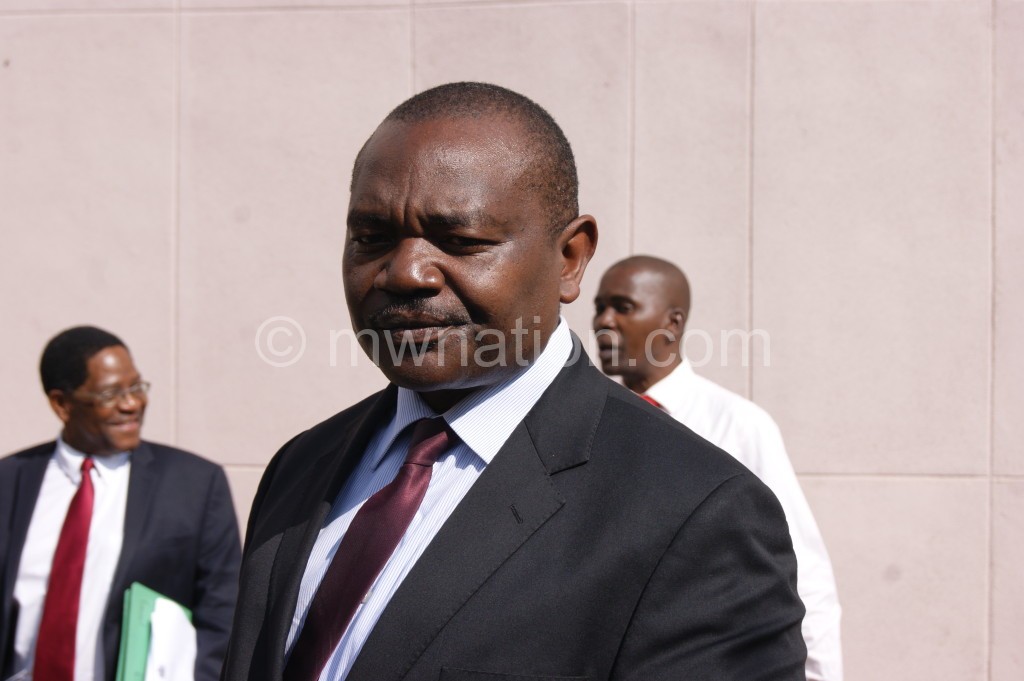AG turns to Supreme Court on maizegate
The State has appealed to the Supreme Court of Appeal seeking relief on Justice John Chirwa’s ruling on the maize scam case in which he ruled that leave for judicial review of President Peter Mutharika’s decision not to suspend Chaponda amid a probe into the Zambia maize import transaction must proceed.
Justice Chirwa, sitting at the High Court in Mzuzu on Tuesday, also sustained an injunction on Agriculture and Water Development Minister George Chaponda, but also ruled that Civil Society Organisations (CSOs) that obtained the injunction must not be removed from the list of applicants.

In the Notice of Appeal which The Nation has seen, the State, through Attorney General Kalekeni Kaphale argues that Justice Chirwa, among others, erred in failing to find that Presidential powers of appointment, suspension or dismissal can only be reviewed on very narrow and limited grounds.
Reads the notice in part: “The learned Judge is failing to contextualize the proceedings by recognizing (i) the non-binding nature of Commissions of Inquiry findings on the President and (ii) to also consider the powers (e.g. to summon witnesses and compel production of documents) and duties (e.g. of impartiality etc) of members of Commissions of Inquiry vis a vis the allegation of potential interference in the Commission’s work by the 1st Appellant and, consequently, as there was no evidence on record of efforts to interfere with the Commission’s work, to hold that there was no necessity for the President to ask the 1st Appellant to resign his office pending the inquiry and that therefore, there was no triable issue fit for a full judicial review application raised by the Proceedings.”
Kaphale further faults the ruling for failing to identify constitutional provisions that would be subject to judicial review in light of the facts so far disclosed, at the main judicial review hearing.
The AG also argues that the court erred in finding that the CSOs have locus standi to remain as parties to the judicial review proceedings and failing to contextualise the proceedings in relation to the Commissions of Inquiry on the maize issue.
Speaking in a telephone interview, Kaphale said they want the Supreme Court of Appeal provide an Order setting aside the grant of leave for judicial review and dismissing the proceedings with costs to the Appellants.
He also said they want the Supreme Court to reverse the ruling that CSOs-Centre for the Development of People (Cedep), Church and Society of Livingstonia Synod of CCAP as well a Youth and Society (YAS), have locus standi in the case.
In law, locus standi is the term for the ability of a party to demonstrate to the court sufficient connection to and harm from the law or action challenged to support that party’s participation in the case.
Lawyer for the CSOs, Welsye MWafulirewa of John Tennyson and Associates said they were yet to be served. But speaking after Justice Chirwa’s determination on Tuesday, Mwafulirwa said the ruling was victory for both democracy and constitutionalism.
He said: “We have partly won and partly lost the battle. We have won because the court has agreed with us that this issue is very important and significant and it should proceed for judicial review and that in fact, the order of an injunction has been sustained. So, we have won.
“A landmark decision on our part again is that the court has agreed with us that the CSOs, namely Cedep, Church and Society as well as Youth and Society, have sufficient interest to commence these proceedings, in other words, they have got locus standi.”





